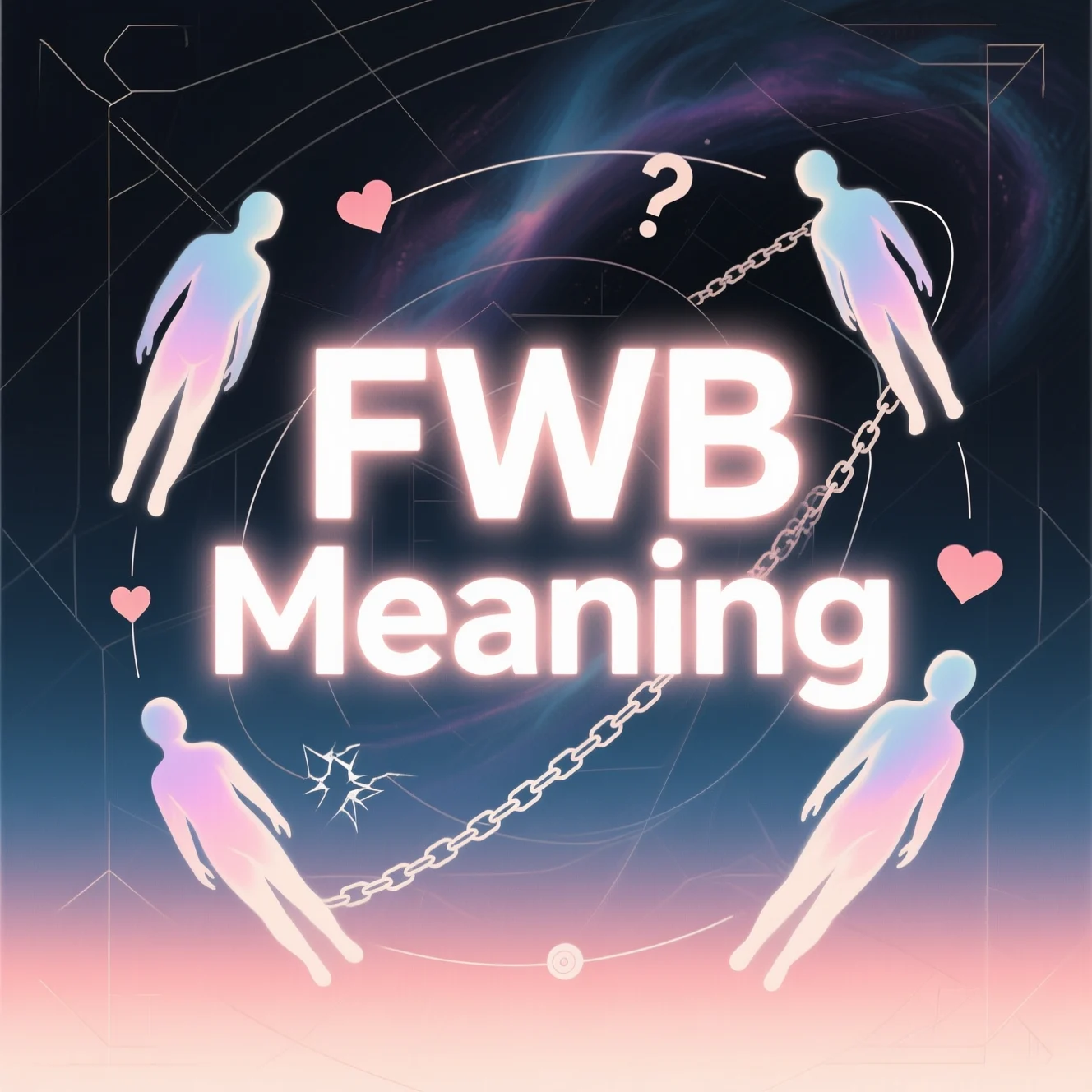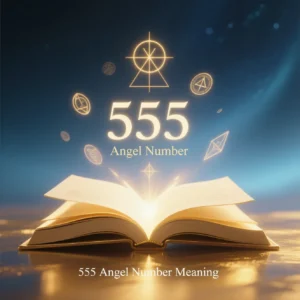In today’s fast-paced world, slang terms pop up everywhere—text messages, social media, gaming chats, and even casual conversations. One term you might have come across is FWB. But what does it mean, and why does it matter? FWB stands for “Friends with Benefits,” a phrase that describes a specific type of relationship.
It’s common in dating apps like Tinder, group chats, and even pop culture discussions. Understanding FWB is key because it can shape how you communicate, especially in romantic or social settings. Misusing or misunderstanding it could lead to awkward moments or hurt feelings. This blog post will break down the meaning, history, and usage of FWB, helping you navigate conversations confidently.
Whether you’re texting a friend or swiping on a dating app, knowing what FWB means ensures you’re on the same page.
Definition & Meaning
FWB means “Friends with Benefits.” It refers to a relationship where two people maintain a friendship but also engage in casual sexual activities without emotional commitment. Unlike a romantic relationship, FWB focuses on physical intimacy and friendship, not love or long-term partnership.
- Key Point: Both parties agree to keep things casual, avoiding the expectations of a traditional relationship.
- Example in Dialogue:
- Alex: “Hey, are you dating Sam now?”
- Jamie: “Nah, we’re just FWB. We hang out, have fun, but no strings attached.”
- Real-Life Usage: FWB is often used in texting or dating apps to clarify intentions. For example, someone might say, “Looking for FWB, not a relationship,” to set boundaries.
- Nuance: The arrangement works best when both people are honest about their expectations. Miscommunication can lead to one person catching feelings, which complicates things.
FWB is popular among younger adults who want companionship and intimacy without the responsibilities of a serious relationship. It’s a term rooted in mutual consent and clear communication.
Background & History
The concept of “Friends with Benefits” isn’t new, but the term gained traction in the late 20th century. Casual relationships have always existed, but labeling them as FWB became popular in the 1990s, thanks to pop culture. Songs, movies, and TV shows like Friends with Benefits (2011) brought the term into the mainstream.
- Origins: The phrase likely emerged from college campuses and urban dating scenes, where people sought low-commitment connections.
- Evolution: By the 2000s, FWB became a common term in online dating, especially with the rise of platforms like Tinder and OkCupid.
- Today’s Use: It’s widely recognized in English-speaking countries, especially in the U.S., Canada, and the U.K. Social media and dating apps have made it a global term, though its meaning stays consistent.
The term reflects a shift toward more open discussions about relationships and boundaries, driven by changing social norms and technology.
Usage in Various Contexts
FWB is versatile and appears in different settings. Here’s how it’s used:
- Texting:
- Mia: “You and Chris seem close. What’s the deal?”
- Liam: “Just FWB. We chill and hook up sometimes, but we’re not dating.”
- Social Media: On platforms like Twitter or Reddit, FWB might appear in posts about dating. Example: “Is FWB worth it, or does it always get messy?”
- Gaming Communities: In gaming chats, FWB is less common but might come up in casual banter. Example: “Yo, you got an FWB situation IRL, or you just grinding in this game?”
- Casual Conversations: Friends might use it jokingly or seriously to describe their relationships. Example: “I’m not ready for a boyfriend, so I’m keeping it FWB with Jake.”
Key Point: The term’s tone depends on the context—playful in friendly chats, serious on dating profiles.
Common Misconceptions & Clarifications
Some people misunderstand FWB, thinking it’s just a fling or a guaranteed path to a relationship. It’s neither.
- Misconception: FWB means no emotions at all.
- Clarification: You can care about your friend, but the focus is on avoiding romantic commitment.
- Misconception: FWB is the same as a one-night stand.
- Clarification: FWB involves an ongoing friendship, not a single encounter.
- Potential Issue: In some contexts, like conservative cultures, FWB might be seen as inappropriate or taboo. Always gauge the setting before using it.
Example:
- Sarah: “So, FWB is just hooking up, right?”
- Emma: “Not exactly. We’re friends first, hang out, and sometimes get physical. It’s not just about sex.”
Clear communication prevents confusion and ensures both parties respect the arrangement.
Similar Terms & Alternatives
FWB has cousins in the slang world. Here are some related terms:
- Hookup: A casual sexual encounter, often one-time, without the friendship aspect.
- Situationship: A vague, undefined romantic connection that’s more than FWB but less than a relationship.
- Booty Call: A late-night call for sex, usually without the friendship component.
| Term | Friendship? | Ongoing? | Emotional Commitment? |
|---|---|---|---|
| FWB | Yes | Yes | No |
| Hookup | No | No | No |
| Situationship | Maybe | Yes | Maybe |
| Booty Call | No | Maybe | No |
Key Point: FWB is unique because it balances friendship with casual intimacy.
How to Respond to This Term
When someone mentions FWB, your response depends on your comfort level and the context. Here are options:
- Casual: “Cool, so you’re keeping it chill with them?”
- Funny: “FWB? So you’re friends with extra benefits, huh?”
- Professional: “I appreciate the clarity. I’m looking for something different, though.”
- Privacy-Conscious: “Oh, interesting. I don’t usually get into that, but thanks for sharing.”
Example Dialogue:
- Taylor: “I’m thinking of trying an FWB thing with someone.”
- Riley: “Nice, as long as you’re both on the same page. Been there, it’s fun but needs clear rules.”
Tip: Always respond in a way that respects boundaries and keeps the vibe light unless deeper discussion is needed.
Regional or Cultural Differences
FWB is most common in Western cultures, particularly in the U.S., U.K., and Australia, where casual dating is widely accepted. In more conservative regions, like parts of Asia or the Middle East, the concept might exist but isn’t openly discussed due to cultural norms around relationships.
- U.S.: FWB is a staple in dating apps and college slang.
- U.K.: Similar to the U.S., with terms like “mates with benefits” as a playful variation.
- Asia: In urban areas like Tokyo or Seoul, FWB exists but may be less explicit due to social stigma.
Key Point: Always consider cultural context before using FWB to avoid misunderstanding.
Comparison with Similar Terms
Here’s a detailed comparison:
| Term | Definition | Key Difference from FWB |
|---|---|---|
| FWB | Friends with casual sex, no commitment | Balances friendship and intimacy |
| Hookup | One-time or occasional sex | No ongoing friendship |
| Situationship | Undefined romantic connection | May involve emotional attachment |
| Booty Call | Sex-focused, often late-night meetups | Lacks the friendship element |
Key Point: FWB stands out for its emphasis on friendship alongside physical connection.
Usage in Online Communities & Dating Apps
FWB is a buzzword on platforms like Tinder, Bumble, and Reddit. On dating apps, users often include “FWB” in their bios to signal they’re not looking for commitment.
- Tinder Example: Bio might read, “Here for FWB or fun vibes, not a relationship.”
- Reddit: Subreddits like r/dating discuss FWB challenges, like “How do you keep FWB from getting messy?”
- Gaming: In Discord servers, FWB might come up in off-topic chats about personal lives.
Tip: On dating apps, clarify expectations early. Example: “Hey, I saw you’re into FWB. Just checking—what does that mean for you?”
Hidden or Offensive Meanings
FWB is generally neutral but can be sensitive in some contexts:
- Hidden Meaning: In rare cases, someone might use FWB to mask wanting a relationship, leading to mixed signals.
- Offensive Potential: In professional or conservative settings, mentioning FWB can seem crude or inappropriate.
- Tone Matters: Saying “Let’s be FWB” jokingly to a friend is fine, but in a serious context without prior discussion, it can feel disrespectful.
Example:
- Jordan: “Wanna be FWB?”
- Casey: “Whoa, let’s talk about what that means first. I don’t want any confusion.”
Key Point: Context and mutual agreement are crucial to avoid offense.
Suitability for Professional Communication
FWB is not suitable for professional settings. It’s a casual, personal term tied to intimate relationships, making it inappropriate for workplaces or formal emails.
- Alternative Phrases:
- “Close colleague” for a professional friend.
- “Casual acquaintance” for someone you know informally.
- Example:
- Instead of: “Me and Sarah are FWB at work.”
- Say: “Sarah and I work well together and grab coffee sometimes.”
Key Point: Stick to professional language in formal settings to maintain respect and clarity.
FAQs
- What does FWB stand for?
- Friends with Benefits, a friendship with casual sexual activity but no romantic commitment.
- Is FWB the same as a hookup?
- No, FWB involves an ongoing friendship, while a hookup is usually a one-time encounter.
- Can FWB turn into a relationship?
- Sometimes, but it requires both parties to want more and communicate clearly.
- Is FWB appropriate to mention on a first date?
- It depends. Be cautious and gauge the other person’s comfort level first.
- Does FWB work long-term?
- It can, but only with clear boundaries and mutual agreement.
- Is FWB common outside English-speaking countries?
- Less so in conservative cultures, but the concept exists globally in urban areas.
Conclusion
FWB, or Friends with Benefits, is a modern term for a relationship balancing friendship and casual intimacy without romantic ties. It’s popular in texting, dating apps, and casual chats, especially in Western cultures. Understanding its meaning, origins, and proper use helps you navigate conversations and relationships confidently. Whether you’re on Tinder, joking with friends, or exploring dating options, clarity is key to making FWB work. Always communicate openly to avoid misunderstandings, and be mindful of cultural or professional contexts where the term might not fit. With this guide, you’re ready to use or respond to FWB like a pro.



